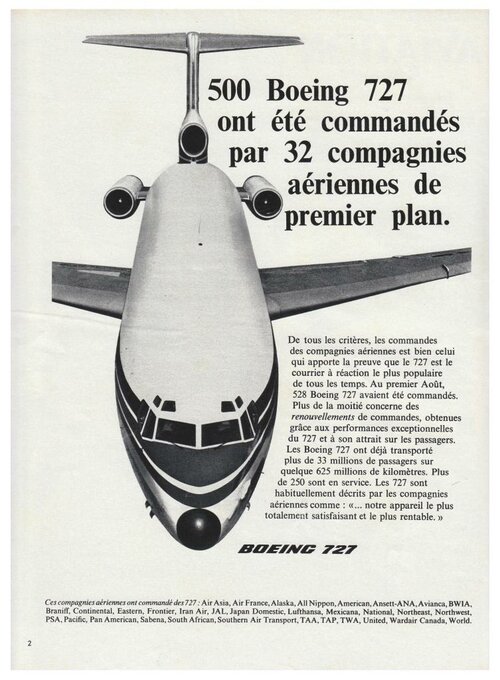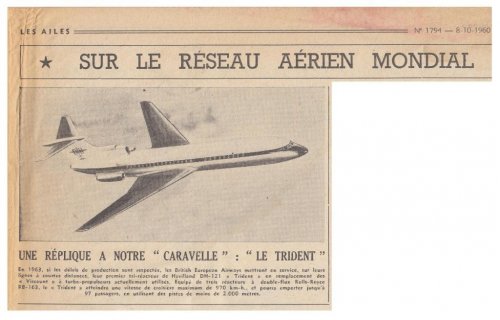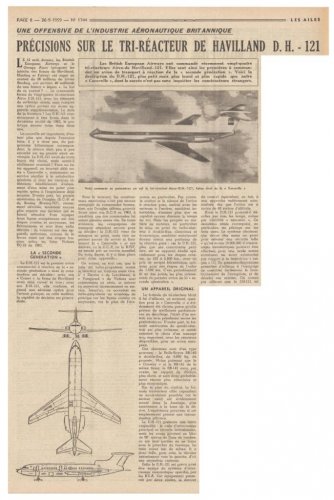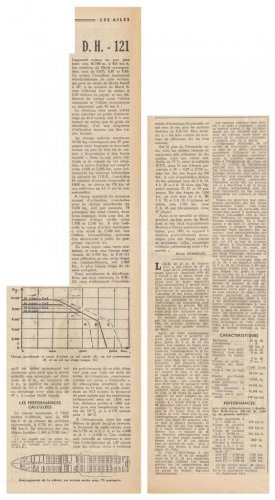It has been fascinating watching the evolution of the debate on why the UK aircraft industry died in the literature between the industry's view ('We made good products the government messed everything up') and the governments view ('We supported the industry all we could, they produced a load of rubbish it's all their fault'). I guess it was Project Cancelled that started it all off with an opening salvo for the industry view. Once again, there is merit in both views - the truth lies between the two poles.
sealordlawrence said:
And? There is also the rest of the world, the commonwealth, Continental Europe, Asia etc. The US is not the only market in the world.
1945 - 55 the US was the only market not wrecked and undergoing painful recovery therefore the only one able to afford high tech such as modern aircraft.
there had been massive investment in plant just prior to the war and during, as ken pointed out most of this made its way back to industry on favourable terms. The transport network and wider infrastructure were entirely adequate - take a look at Germany in 1945 and then what its manufacturers achieved in the decades afterwards. And the companies had plenty of cash.
The plant had been running 24/7 with minimum maintenance for six years - it was trashed. Transport and infrastructure in the UK was wholly inadequate Corelli Barnett - The Lost Victory Chapter 14 - the notes to that chapter run 102 different references most from Cabinet papers decrying the lamentable state of UK roads, rail and telecommunications in the 45-55 era.
One of the keys to German success was that in terms of infrastructure it was a blank slate. Everything industrial was destroyed so they had to order new machine tools, new factories, new plant. People were grateful to have a job and there was no burden of defence or social services so wages and taxes stayed low and capital could go where it could build industry. The German government were not so stupid as to try and run an enormous welfare state and a vastly expensive world role (including helping pay for German defence as the UK did) off the back of a shattered economy.
hahahahahaha, it likes to think it did, that is not the same thing. I suggest you read Gordon Store's description of the Avro Tudor.
Nonsense, UK industry was given every opportunity to compete and it never managed it because its products were poor and its companies lacked the courage to aggressively pursue a global market. The UK ended WW2 with what was in some areas the most advanced aerospace industry in the world equipped with modern plant and with plenty of capital and then that very industry destroyed itself. And you ignore the fact that virtually every UK civil aviation programme got dollops of public money. The idea of poverty is a myth.
Yes, it has often been pointed out that the UK industry in the 40s and 50s produced flocks of failed designs, the Avro Tudor was but one. What is usually missed is that ALL the aircraft manufacturing countries 1940-1970 produced flocks of turkeys and precious few decent aircraft. The difference is we Brits do so love to wallow in our failures so the UK literature concentrates on the bad UK aircraft and ignores everyone else's bad aircraft
This is the great canard of the 'The government was blameless' point of view and it is built on the notion that any aircraft industry using 40s, 50s and 60s technology and development practices could produce only successful designs. It is quite possible that in the UK the industry let the government think this was possible to secure funding but even the most cursory examination of the evidence shows how optimistic a view this was.
Lets look at the German case, why were they still building He111s and Do217s at the end of the war? Because the two huge and vastly expensive programs designed to replace them (Bomber A - He177 and Bomber B - FW191, Ju288, Do317 et al) were complete failures. Yes a few He 177s were used operationally but they were death traps with constant engine fires.
German fighters - Ta 154? What a joke, Ta152, Me262? - only usable in the straightened circumstances of the end of the war where the Luftwaffe was in essence fighting from next to its factories so the laughable TBOs of the two types didn't matter. Imagine if the Luftwaffe had still been fighting on the Steppes of Russia or in North Africa - how would their servicability rates have looked? Pretty sick. Me163 - too fast and unmanouverable for the pilots to draw a bead on their targets. Me 210 - completely useless till the Hungarians re-designed it as the Me 410, Do335, incredibly fast but they couldn't cure the snaking and porpoising at high speed making it unusable in combat.
Too narrow a sample? What about the Americans?
How many truly first rate fighters did the US industry produced in WW2 without British help or a long and difficult teething period?
What of bombers? With the exception of the B17 and B25 which ones didn't have problem riddled service entries? The B24 was always a death trap even after it had been in squadron service for years, the B26 wasn't called the widow maker for nothing, the B29 took years to cure its engine fire problem and its defensive armament never worked properly.
But it didn't stop at WW2 - lets look at 1945-70
XP79- A flying ram? What were they thinking?
XP81 - Complete failure - lousy performance.
XP83 - Unable to perform its designed role.
F84H - Made people pass out and puke (I kid you not) AND had crap performance.
XF85 - A lethally stupid idea abandoned after 7 flights.
XP87 - So bad the XP89 was considered better.
XP89 - Pilots never knew whether the wings would fall off before the engines exploded or after.
XF88 - Complete failure, too slow, too thirsty
F94 - Underarmed, poor rate of climb, lousy engines, radar didn't work - ordered in quantity because there wasn't anything else.
F104 - so long and troublesome a development period that the USAF eventually walked away. Lockheed then bribed lots of European air forces to take it where it killed pilots in truly spectacular numbers.
XFV1 - An unworkable idea that logged only 23 flying hours before cancellation.
XF2Y - Abandoned because it was underpowered and prone to dangerous vibrations at takeoff and landing.
FJ1 - Abandoned due to poor performance.
F3H - Many crashes and many fatalities before the thing was fit for service and then it was too slow.
F4D - Ordered in '47, didn't get to the squadrons till '56 because it took that long to cure its problems.
F6U - Underpowered and laterally unstable.
F7U - 300 built, 25% lot in accidents, killed 24 pilots.
XFV12 - Built from spare parts and turned out to be rubbish.
And that's just the fighters...
So if you want to brand the UK industry as prone to failures - go right ahead, I won't deny it. Just don't be forgetting that everyone else's aircraft industry was too - so parading the UK design failures as evidence of the inferiority of the UK industry just doesn't wash.
Please remember the difference between total war and peace time. Post war industry should have lead itself and found new clients, and it did not, unlike US industry which managed just that.
I state again, US industry had significant advantages over British industry.
Yes you can, government is just another customer, it is the role if industry to serve the customer not the role of the customer to serve the industry. And you are conflating the military and civilian market. Industry should have pursued the civilian market on its own.
I say again, the government had already stripped the UK industry of its initiative and then having arrogated a leadership role failed to provide good leadership.
I also hardly need point out the crossover in the civil and military markets and the fact that whether the customer was BOAC or the RAF, UK aircraft purchases were still mostly funded by government money. MAP in WW2 led the industry by the nose, its successor continued the policy but there was never enough money to do the job it wanted done properly. This was a direct result of the UKs penury which was caused principally by government spending money on New Jerusalem projects not re - capitalising industry. This was not only true in the aircraft industry.
My own view is that both parties had a hand in the death of the UK aircraft industry, each has tried to absolve itself and blame the other, both are to some degree culpable, but as you will already have gathered I feel government was more culpable than the industry because the fundamental problems were
1. Poor government leadership of industry from 1945 to present.
2. A lack of money in the economy itself which I view to be the fault of various governments of all political persuasions from 1926 until the late 70s.
3. When the government had some money they spent it on 'New Jerusalem' panacea projects instead of rebuilding a wrecked economy.
SLL - I guess that we are not going to agree so I shall simply say it has been enjoyable and all the best to you!




